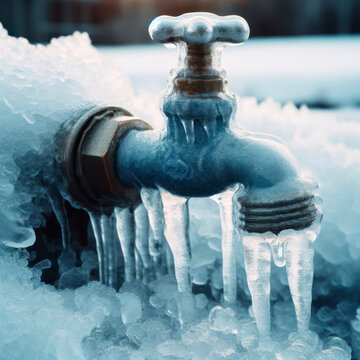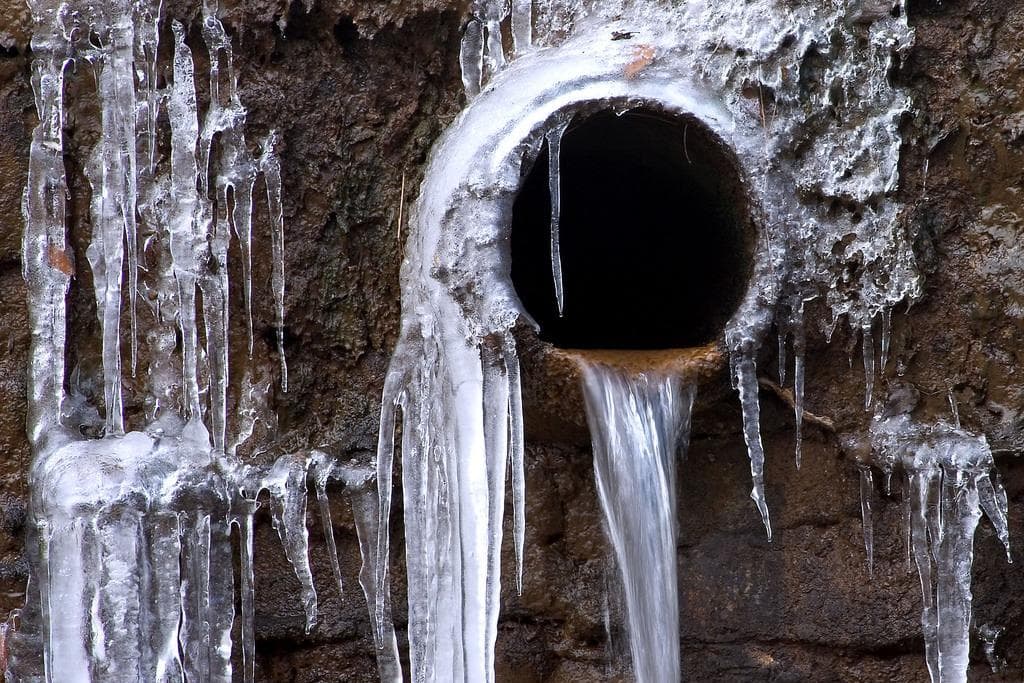Critical Strategies for Avoiding Frozen Pipes in Winter
Critical Strategies for Avoiding Frozen Pipes in Winter
Blog Article
They are making a number of good pointers on the subject of How To Avoid Freezing Pipes overall in this post further down.

Winter can wreak havoc on your plumbing, especially by freezing pipelines. Right here's exactly how to avoid it from occurring and what to do if it does.
Introduction
As temperature levels decline, the threat of frozen pipes rises, possibly leading to pricey repairs and water damage. Comprehending exactly how to prevent frozen pipelines is important for home owners in chilly environments.
Recognizing Icy Pipelines
What triggers pipelines to ice up?
Pipelines ice up when subjected to temperatures listed below 32 ° F (0 ° C) for extended periods. As water inside the pipelines freezes, it broadens, taxing the pipe wall surfaces and possibly causing them to rupture.
Threats and damages
Frozen pipes can cause supply of water interruptions, residential or commercial property damage, and costly fixings. Ruptured pipelines can flooding homes and create extensive structural damage.
Signs of Frozen Pipes
Identifying frozen pipelines early can stop them from breaking.
Exactly how to determine frozen pipes
Seek lowered water flow from faucets, uncommon smells or noises from pipelines, and noticeable frost on exposed pipes.
Avoidance Tips
Protecting susceptible pipelines
Cover pipes in insulation sleeves or make use of warmth tape to safeguard them from freezing temperatures. Focus on pipelines in unheated or outside locations of the home.
Home heating techniques
Maintain interior spaces sufficiently heated up, particularly locations with pipes. Open up closet doors to enable cozy air to flow around pipelines under sinks.
Shielding Outside Plumbing
Garden hoses and outdoor taps
Disconnect and drain pipes yard hoses prior to winter season. Install frost-proof faucets or cover outdoor faucets with shielded caps.
What to Do If Your Pipes Freeze
Immediate activities to take
If you think icy pipes, maintain taps open to soothe pressure as the ice melts. Utilize a hairdryer or towels taken in hot water to thaw pipes slowly.
Long-Term Solutions
Architectural adjustments
Think about rerouting pipes away from exterior walls or unheated locations. Add additional insulation to attic rooms, cellars, and crawl spaces.
Upgrading insulation
Invest in top quality insulation for pipes, attics, and wall surfaces. Proper insulation aids keep regular temperature levels and reduces the danger of frozen pipelines.
Conclusion
Avoiding icy pipes requires aggressive steps and fast reactions. By comprehending the causes, signs, and preventive measures, home owners can secure their pipes during winter.
Helpful Tips to Prevent Frozen Pipes this Winter
UNDERSTANDING THE BASICS: WHY PIPES FREEZE AND WHY IT’S A PROBLEM
Water freezing inside pipes is common during the winter months, but understanding why pipes freeze, and the potential problems it can cause is crucial in preventing such incidents. This section will delve into the basics of why pipes freeze and the associated problems that may arise.
THE SCIENCE BEHIND FROZEN PIPES
When water reaches freezing temperatures, it undergoes a physical transformation and solidifies into ice. This expansion of water as it freezes is the primary reason pipes can burst. As the water inside the pipe freezes, it expands, creating immense pressure on the walls. If the pressure becomes too great, the pipe can crack or rupture, leading to leaks and water damage.
FACTORS THAT CONTRIBUTE TO PIPE FREEZING
Low Temperatures: Extremely cold weather, especially below freezing, increases the risk of pipes freezing. Uninsulated or Poorly Insulated Pipes: Pipes located in unheated areas, such as basements, crawl spaces, or attics, are more prone to freezing. Insufficient insulation or lack of insulation altogether exacerbates the problem. Exterior Wall Exposure: Pipes running along exterior walls are susceptible to freezing as they encounter colder temperatures outside. Lack of Heating or Temperature Regulation: Inadequate heating or inconsistent temperature control in your home can contribute to frozen pipes. PROBLEMS CAUSED BY FROZEN PIPES
- Pipe Bursting: As mentioned earlier, the expansion of water as it freezes can cause pipes to burst, resulting in significant water damage.
- Water Damage: When pipes burst, it can lead to flooding and water damage to your property, including walls, ceilings, flooring, and personal belongings.
- Structural Damage: Prolonged exposure to water from burst pipes can compromise the structural integrity of your home, leading to costly repairs.
- Mold and Mildew Growth: Excess moisture from water damage can create a favorable environment for mold and mildew growth, posing health risks to occupants.
- Disrupted Water Supply: Frozen pipes can also result in a complete or partial loss of water supply until the issue is resolved.
WHY CERTAIN PIPES ARE MORE PRONE TO FREEZING
- Location: Pipes located in unheated or poorly insulated areas, such as basements, crawl spaces, attics, or exterior walls, are at higher risk of freezing.
- Exterior Pipes: Outdoor pipes, such as those used for irrigation or exposed plumbing, are particularly vulnerable to freezing as they are directly exposed to the elements.
- Supply Lines: Pipes that carry water from the main water supply into your home, including the main water line, are critical to protect as freezing in these lines can affect your entire plumbing system.
- Underground Pipes: Pipes buried underground, such as those connected to sprinkler systems or outdoor faucets, can be susceptible to freezing if not properly insulated.
https://busybusy.com/blog/helpful-tips-to-prevent-frozen-pipes-this-winter/

Do you like reading up on 6 Ways to Prevent Frozen Pipes? Make a remark directly below. We will be delighted to find out your thoughts about this write-up. Hoping that you come back again later on. If you liked our post kindly remember to pass it around. We cherish reading our article about How to Prevent Your Pipes From Freezing.
Book Instantly Report this page